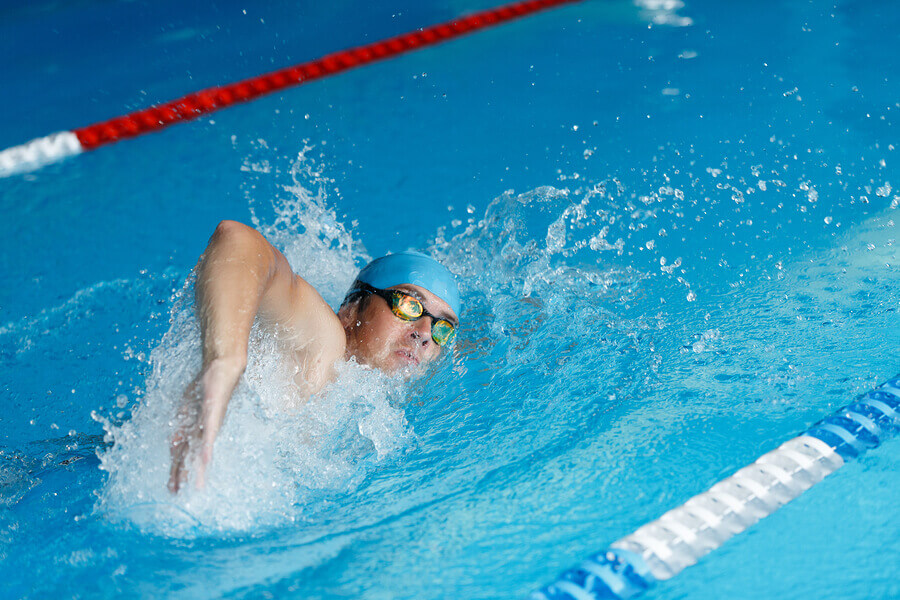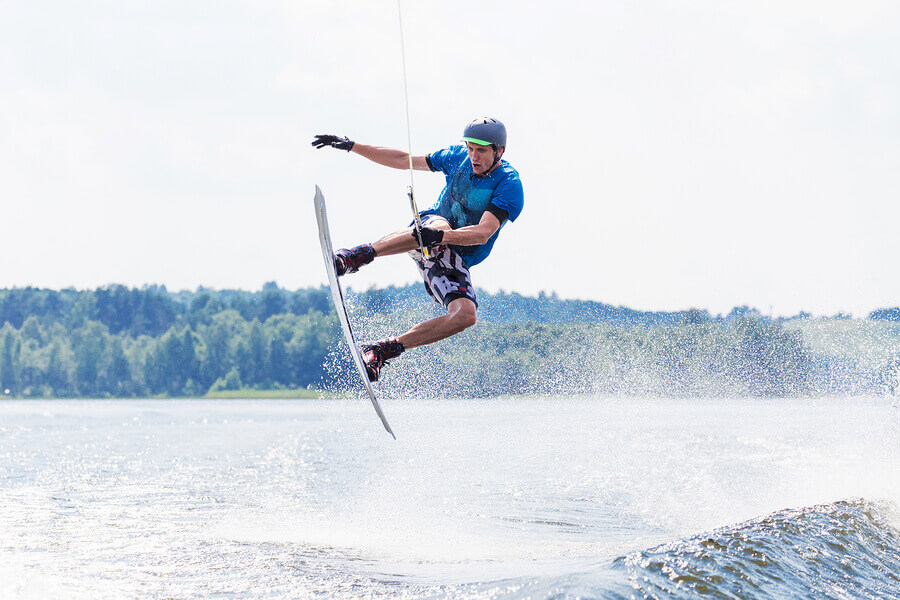The Olympiad: the Road to Success at the Olympic Games

An Olympiad is a four-year period between Olympic Games. During these four years, the 205 members of the International Olympic Committee (IOC) participate in regional sports competitions. These games are an important part of the world of the Olympics.
The importance of planning during the Olympiad
As we mentioned above, these four-year cycles begin at the end of every set of Olympic Games. In many cases, the athletes that participate in the Olympics already have their minds on the next one.
Thus, the four years is an important time to plan and push physical performance. Coaches use this period to plan out ways for their athletes to make it to the next Olympics in top condition.
But, being prepared for the Olympic Games is just as important as being ready for the preliminary events. The preliminary events are a crucial step. Coaches must prepare their athletes relentlessly in order for them to progress in the key moments of these four years.
How do athletes qualify for the Olympic Games?
The answer is rather complicated as qualifications depend on a variety of factors. The factors differ depending on the sport, or in some cases, according to the IOC’s qualifying systems. Here are some examples of the possible factors:
- In individual sports such as track and field events, swimming, and others, the main criteria is timing. The IOC establishes minimum times that athletes must adhere to in order to have a chance to play in the Games. When athletes do beat the minimum time requirement, the IOC rests the final decision on the representative of the athlete’s country. In that final step, the representative uses his or her own criteria to determine the best athletes for the Games.

- On the other hand, group sports such as soccer, handball or basketball have different qualifying criteria. In basketball, for example, the top teams from the FIBA World Cup are directly qualified to play in the Olympics. Meanwhile, other teams have to face each other in a tournament to secure the remaining spots.
- Similar to basketball, other sports, such as rowing or kayaking use pre-Olympic events to qualify athletes for the Olympic Games.
- Lastly, in sports such as tennis, the top-64 players on the international ranking (4-player max per country) win a ticket to the Olympic Games. The International Tennis Federation (ITF) also can hand-selected a group of individuals to qualify as well.
As you can see, the qualifying processes differ depending on the sport. But Olympic champion or not, just being able to participate in the Games is a victory in itself.
What kind of pre-Olympic events are there?
Below, we’ve prepared a list of some of the pre-Olympic sports events that take place during the Olympiad. Many of these competitions award competitors a spot in the Olympics. The IOC organizes all of these events.
- African Games.
- European competitions or World Cups in different sports.
- Pan American Games.
- Central American and Caribbean Games.
- South American Games.
- Summer Asian Games.
- Winter Asian Games.
- European Youth Olympic Festival.
- Pacific Games.
- Other pre-Olympic events that serve preliminary purposes for the next Olympic Games.

Next up: Olympic Games, Tokyo 2020
The next Olympic venue is Tokyo 2020. We’re currently facing an important moment just before the Games unfold. Many athletes have already secured their spots in Tokyo, but there are still some left for the taking.
Now that you know how the preliminaries work in the Olympic Games, don’t wait until next year to see the action. Check out the games that lead up to the Olympics. Tokyo is just around the corner!
An Olympiad is a four-year period between Olympic Games. During these four years, the 205 members of the International Olympic Committee (IOC) participate in regional sports competitions. These games are an important part of the world of the Olympics.
The importance of planning during the Olympiad
As we mentioned above, these four-year cycles begin at the end of every set of Olympic Games. In many cases, the athletes that participate in the Olympics already have their minds on the next one.
Thus, the four years is an important time to plan and push physical performance. Coaches use this period to plan out ways for their athletes to make it to the next Olympics in top condition.
But, being prepared for the Olympic Games is just as important as being ready for the preliminary events. The preliminary events are a crucial step. Coaches must prepare their athletes relentlessly in order for them to progress in the key moments of these four years.
How do athletes qualify for the Olympic Games?
The answer is rather complicated as qualifications depend on a variety of factors. The factors differ depending on the sport, or in some cases, according to the IOC’s qualifying systems. Here are some examples of the possible factors:
- In individual sports such as track and field events, swimming, and others, the main criteria is timing. The IOC establishes minimum times that athletes must adhere to in order to have a chance to play in the Games. When athletes do beat the minimum time requirement, the IOC rests the final decision on the representative of the athlete’s country. In that final step, the representative uses his or her own criteria to determine the best athletes for the Games.

- On the other hand, group sports such as soccer, handball or basketball have different qualifying criteria. In basketball, for example, the top teams from the FIBA World Cup are directly qualified to play in the Olympics. Meanwhile, other teams have to face each other in a tournament to secure the remaining spots.
- Similar to basketball, other sports, such as rowing or kayaking use pre-Olympic events to qualify athletes for the Olympic Games.
- Lastly, in sports such as tennis, the top-64 players on the international ranking (4-player max per country) win a ticket to the Olympic Games. The International Tennis Federation (ITF) also can hand-selected a group of individuals to qualify as well.
As you can see, the qualifying processes differ depending on the sport. But Olympic champion or not, just being able to participate in the Games is a victory in itself.
What kind of pre-Olympic events are there?
Below, we’ve prepared a list of some of the pre-Olympic sports events that take place during the Olympiad. Many of these competitions award competitors a spot in the Olympics. The IOC organizes all of these events.
- African Games.
- European competitions or World Cups in different sports.
- Pan American Games.
- Central American and Caribbean Games.
- South American Games.
- Summer Asian Games.
- Winter Asian Games.
- European Youth Olympic Festival.
- Pacific Games.
- Other pre-Olympic events that serve preliminary purposes for the next Olympic Games.

Next up: Olympic Games, Tokyo 2020
The next Olympic venue is Tokyo 2020. We’re currently facing an important moment just before the Games unfold. Many athletes have already secured their spots in Tokyo, but there are still some left for the taking.
Now that you know how the preliminaries work in the Olympic Games, don’t wait until next year to see the action. Check out the games that lead up to the Olympics. Tokyo is just around the corner!
All cited sources were thoroughly reviewed by our team to ensure their quality, reliability, currency, and validity. The bibliography of this article was considered reliable and of academic or scientific accuracy.
- The International Olympic Committee. Sitio oficial del COI. https://www.olympic.org/the-ioc
- Olympic Tennis Event. ITF Sitio oficial. https://www.itftennis.com/olympics/
- Olivera-Betrán, J. (1998). El movimiento olímpico y el desafío del siglo XXI. Apunts. Educación Física y Deportes. (51), 3-4.
- Robles-Rey, E. & Martínez-Núñez, L. V. (2013). Juegos Olímpicos: una propuesta didáctica e interdisciplinar. Emás F. Revista Digital de Educación Física. 4 (22), 72-91.
This text is provided for informational purposes only and does not replace consultation with a professional. If in doubt, consult your specialist.








